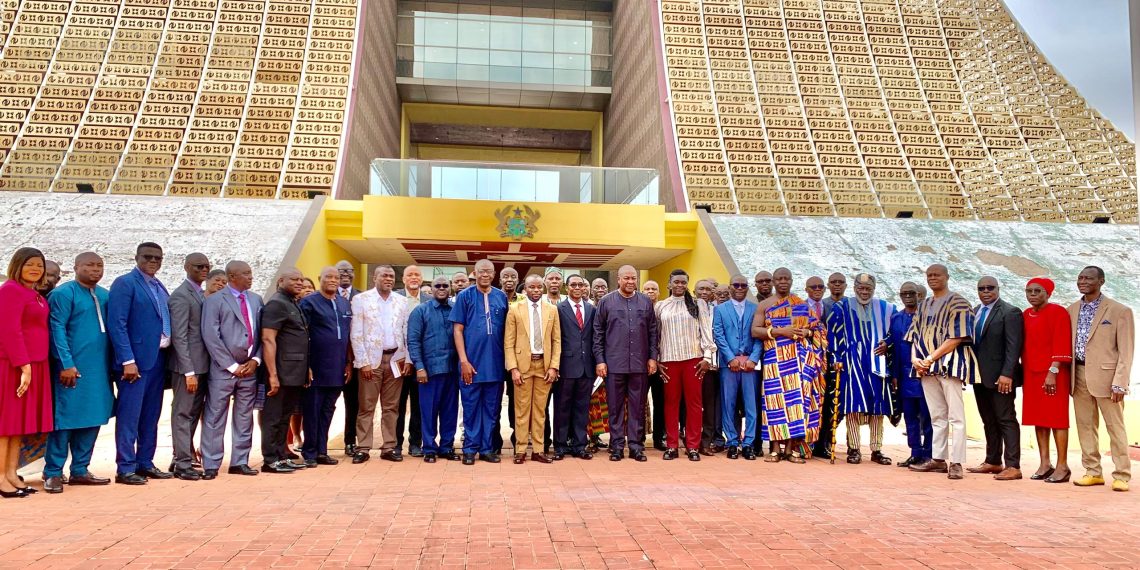Read also:
- Vote Buying Claims Dismissed in Akwatia By-Election
- Ghana’s Chief Justice Removed: A Threat to Balance of Power
- NPP’s Salam Mustapha Accuses NDC of Deploying Thugs in Akwatia By-Election
- Thomas Partey’s Court Hearing Adjourned Without Explanation
- President Mahama Lifts Ban on State Land Transactions, Introduces Reforms for Transparency and Accountability
President John Dramani Mahama has officially inaugurated a new governing board of the National Lands Commission, charging its members to oversee operations across the country with integrity, fairness, and accountability. The swearing-in ceremony took place at the Jubilee House on Tuesday, September 2, where President Mahama administered the oath of office and the oath of secrecy to the newly appointed board members.
During his address, President Mahama emphasized the importance of women’s representation on the board, noting that the current composition falls short with only one female member, Prof. Nana Ama Klutse, Chief Executive of the Environmental Protection Agency. He called for a review of the Affirmative Action Law to ensure at least 30% representation of women in public offices, as mandated.
The President directed a comprehensive audit of state lands acquired between 2017 and 2024, vowing to reclaim any lands acquired illegally. He also announced the lifting of a temporary ban on state land transactions, stressing that all future transactions would be subject to transparent, digitally verified processes, and strict oversight mechanisms.
To enhance efficiency in land administration, President Mahama set a target for processing land documents within 30 working days and warned against corruption, absenteeism, and deliberate delays to exact bribes. Over 300 young professionals will be recruited and deployed to new district land offices to decentralize service delivery.
The President’s initiatives aim to restore public confidence in the Lands Commission by ensuring transparency, fairness, and justice in land administration. By implementing these reforms, the Commission can promote efficient land management, prevent illegal land acquisitions, and improve service delivery to citizens.




